Frequently Asked Questions
QuestionS about selling
What are the fees involved in selling property in Dubai?
The fees typically include a 4% transfer fee (paid to the Dubai Land Department), agent commission (usually 2%), and NOC fees (from the developer or management). Additional costs might apply for legal services or document verification.
Do I need to be a resident of Dubai to sell property here?
No, non-residents can sell property in Dubai, but the process requires proper documentation and legal procedures to ensure the transfer is smooth.
How long does it take to sell a property in Dubai?
Yes, you can sell your property even with an outstanding mortgage, but the mortgage must be cleared during the transfer process. This is usually done with the involvement of your bank.
Can I sell my property if there is an outstanding mortgage?
The process of selling a property can take anywhere from a few weeks to a couple of months, depending on factors like market conditions, price, and paperwork completion.
Do I need an agent to sell my property in Dubai?
While it’s not mandatory, working with a professional broker is the best choice because they offer unparalleled market knowledge, access to a large pool of qualified buyers, and expertise in navigating the complexities of the sales process. With a broker, you can maximize your property’s value, streamline the selling process, and ensure a smooth, hassle-free transaction, all while minimizing the risks involved.
Lorem ipsum dolor sit amet, consectetur adipiscing elit. Quisque aliquet massa mi, sed ornare dui ullamcorper non. Pellentesque habitant morbi tristique senectus et netus et malesuada fames ac turpis egestas. Duis nec orci ac lorem tempor ultricies. Pellentesque pulvinar nisl pulvinar ex tincidunt, eu gravida lacus auctor. Maecenas finibus eros pharetra, tempus tortor sit amet, faucibus sapien. Donec non nulla posuere, malesuada urna quis, ornare lectus. Nunc gravida, sapien non laoreet consectetur, sem ligula consequat ex, sit amet sodales velit dui a ipsum. Mauris aliquet metus nec dui porttitor, non mattis ex accumsan. Duis gravida diam est, ac molestie erat porta sit amet. Vivamus tortor mauris, aliquet condimentum elit porttitor, consequat malesuada nibh. Duis nec vestibulum nisi, eget dignissim ex
Lorem ipsum dolor sit amet, consectetur adipiscing elit. Quisque aliquet massa mi, sed ornare dui ullamcorper non. Pellentesque habitant morbi tristique senectus et netus et malesuada fames ac turpis egestas. Duis nec orci ac lorem tempor ultricies. Pellentesque pulvinar nisl pulvinar ex tincidunt, eu gravida lacus auctor. Maecenas finibus eros pharetra, tempus tortor sit amet, faucibus sapien. Donec non nulla posuere, malesuada urna quis, ornare lectus. Nunc gravida, sapien non laoreet consectetur, sem ligula consequat ex, sit amet sodales velit dui a ipsum. Mauris aliquet metus nec dui porttitor, non mattis ex accumsan. Duis gravida diam est, ac molestie erat porta sit amet. Vivamus tortor mauris, aliquet condimentum elit porttitor, consequat malesuada nibh. Duis nec vestibulum nisi, eget dignissim ex
Lorem ipsum dolor sit amet, consectetur adipiscing elit. Quisque aliquet massa mi, sed ornare dui ullamcorper non. Pellentesque habitant morbi tristique senectus et netus et malesuada fames ac turpis egestas. Duis nec orci ac lorem tempor ultricies. Pellentesque pulvinar nisl pulvinar ex tincidunt, eu gravida lacus auctor. Maecenas finibus eros pharetra, tempus tortor sit amet, faucibus sapien. Donec non nulla posuere, malesuada urna quis, ornare lectus. Nunc gravida, sapien non laoreet consectetur, sem ligula consequat ex, sit amet sodales velit dui a ipsum. Mauris aliquet metus nec dui porttitor, non mattis ex accumsan. Duis gravida diam est, ac molestie erat porta sit amet. Vivamus tortor mauris, aliquet condimentum elit porttitor, consequat malesuada nibh. Duis nec vestibulum nisi, eget dignissim ex
Lorem ipsum dolor sit amet, consectetur adipiscing elit. Quisque aliquet massa mi, sed ornare dui ullamcorper non. Pellentesque habitant morbi tristique senectus et netus et malesuada fames ac turpis egestas. Duis nec orci ac lorem tempor ultricies. Pellentesque pulvinar nisl pulvinar ex tincidunt, eu gravida lacus auctor. Maecenas finibus eros pharetra, tempus tortor sit amet, faucibus sapien. Donec non nulla posuere, malesuada urna quis, ornare lectus. Nunc gravida, sapien non laoreet consectetur, sem ligula consequat ex, sit amet sodales velit dui a ipsum. Mauris aliquet metus nec dui porttitor, non mattis ex accumsan. Duis gravida diam est, ac molestie erat porta sit amet. Vivamus tortor mauris, aliquet condimentum elit porttitor, consequat malesuada nibh. Duis nec vestibulum nisi, eget dignissim ex
Lorem ipsum dolor sit amet, consectetur adipiscing elit. Quisque aliquet massa mi, sed ornare dui ullamcorper non. Pellentesque habitant morbi tristique senectus et netus et malesuada fames ac turpis egestas. Duis nec orci ac lorem tempor ultricies. Pellentesque pulvinar nisl pulvinar ex tincidunt, eu gravida lacus auctor. Maecenas finibus eros pharetra, tempus tortor sit amet, faucibus sapien. Donec non nulla posuere, malesuada urna quis, ornare lectus. Nunc gravida, sapien non laoreet consectetur, sem ligula consequat ex, sit amet sodales velit dui a ipsum. Mauris aliquet metus nec dui porttitor, non mattis ex accumsan. Duis gravida diam est, ac molestie erat porta sit amet. Vivamus tortor mauris, aliquet condimentum elit porttitor, consequat malesuada nibh. Duis nec vestibulum nisi, eget dignissim ex
Questions About Purchasing Off-Plan
What is an off-plan property?
An off-plan property is a property that is purchased before construction is completed. Buyers typically secure the property based on plans, renderings, and models provided by the developer.
What are the payment plans for off-plan properties?
Developers in Dubai often offer flexible payment plans, including down payments followed by staggered payments during construction. Some plans may also include post-handover payment options.
Are off-plan properties a good investment in Dubai?
Off-plan properties can offer good returns, especially if purchased early in the project’s life cycle. However, the market can be volatile, and it’s essential to research the developer and project thoroughly.
Is it safe to buy off-plan property in Dubai?
Yes, buying off-plan properties in Dubai is generally safe, especially when purchasing from a reputable and licensed developer. Ensure all due diligence is done, including checking the developer’s track record and project status.
What are the risks of purchasing off-plan properties?
Risks include construction delays, market fluctuations, and potential changes to the original plan. It’s vital to read the contract carefully and be aware of any contingencies in case the project doesn’t proceed as planned.
Questions About Renting
What documents are required to rent a property in Dubai?
Typically, you’ll need a valid passport, residency visa, Emirates ID, proof of income, and a security deposit (usually one month’s rent).
How long are rental contracts in Dubai?
Rental contracts in Dubai usually last one year, though short-term leases and renewals can be arranged based on agreement with the landlord.
Can I negotiate rent in Dubai?
Rent is sometimes negotiable depending on the market conditions, location, and property type. If the property is vacant, landlords may be more open to negotiation.
Are utilities included in the rent?
Utilities (water, electricity, and cooling) are typically not included in the rent unless specified. Tenants usually pay these separately through DEWA (Dubai Electricity and Water Authority).
What is the standard process for renewing a rental contract in Dubai?
Rental contracts are often renewed annually. Tenants should notify the landlord of their intention to renew a few months in advance. Rent increases are subject to the Dubai Rent Law, and landlords must provide notice if they wish to raise rent.

